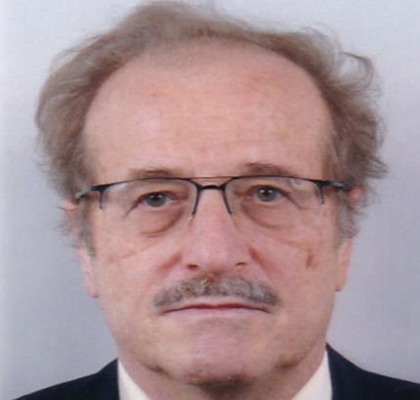
Professor i.R. (Innsbruck), Prof. (Moscow), President of International Academy of Science Health & Ecology, Innsbruck, Austria
MD since 1969 at University of Innsbruck, assoc. Professor for Hygiene since 1977, full Professor and Director for Hygiene and Social Medicine since 1983 in Innsbruck University and since 2002 in Medical University of Innsbruck, retired 2010. 1984 he founded the first School of Public Health in Austria, was one year Professor for Sociology at Lüneburg University (Germany). Since 2011 Professor on the I.M. Sechenov Moscow State Medical University (Department of Normal Physiology). Recently President of the International Academy of Science - Health & Ecology.
He is a pioneer in the scientific and applied field of health and ecology with his fundamental studies about air pollution and health in the Austrian Alps since 1970, the first strategies for environmental protection in Austria (e.g. for the Tyrolean government 1974, as a leading author for the first concepts of the Austrian Ministry for Science 1978). He was consultant to the Austrian Government in different positions e.g. as Chairmen of the Subcommittee “Strategy for Commerce and Trade” in the Commission for the Austrian National Green Plan, for the Forum for Sustainability etc. He was consultant for the WHO, EU e.g. for Environmental health Plans for Traffic. He realised the first environmental risk assessment for a superhighway including ecological mapping, positive and negative aspects on toxicological and perceptible environmental factors. This was 1982 – long before the term “Environmental Risk Assessment” or “Health Risk Assessment” were born. He could introduce new standards to protect health in connection with the legal procedure of high speed trains and used these instruments for health promotive aspects by land use planning.
He could change the state of the art e.g. by confirmation of the “toxicopy-principle” in environmental settings - an equivalent to the placebo reaction in medicine.
Since nearly 50 years he is working on a theoretical frame to link natural scientific aspects of medicine with psychological, social, cultural and other “non natural scientific” aspects. He could develop the so-called “Extended view” of a human person as an eco-socio-cultural being, which allows to link former incompatible health related scientific disciplines like subsets within a joint ground set. He could confirm empirically and logically the ability to deal with information and to initiate energetical functions. Its deficit can cause causally unspecific health effects; its increase is a basis for health promotion and wellbeing. This discovery was honoured by Nobel Laureate Y.Tse Lee with the Th. Kuhn Hope for the Future for a Sustainable World Award 2002 as the world wide most relevant sustainability oriented scientific contribution 1999-2001.
This theoretical frame allows a problem oriented use of different sectoral scientific positions e.g. of COVID-19 for a comprehensive strategy against the era of pandemics. This is presently in the centre of his work in cooperation with members of IAS-HE.
He is member of the Russian Academy of Science, the Russian Academy of Natural Science, Honorary President of the Azerbaijan section of IAS, member of Russian, Japanese and Indian section of IAS. He is member of the Royal Society of Medicine (UK) and of the presidium of the Austrian Nature Conservation Organisation.